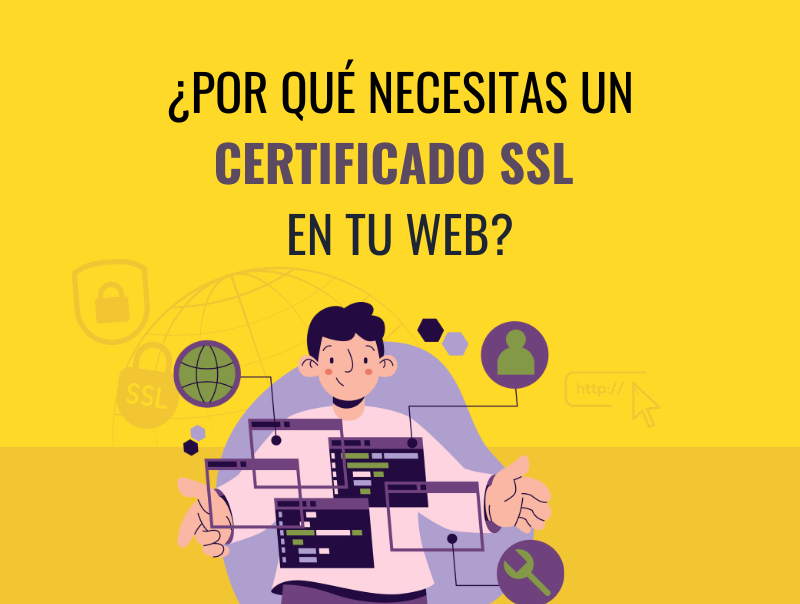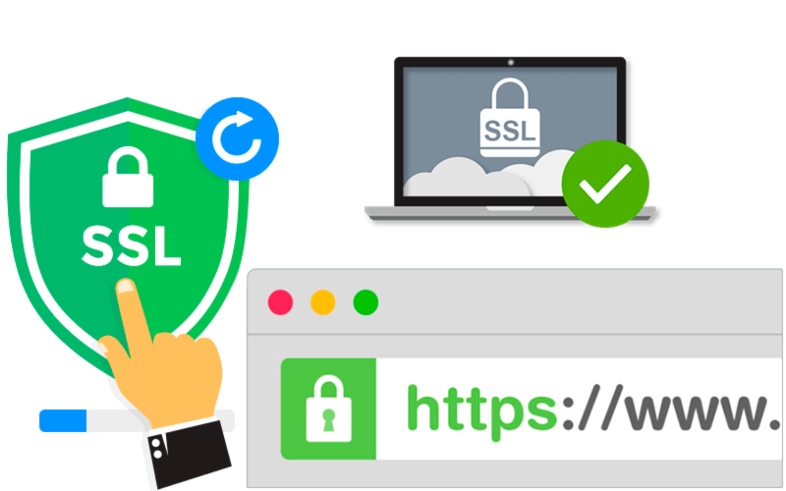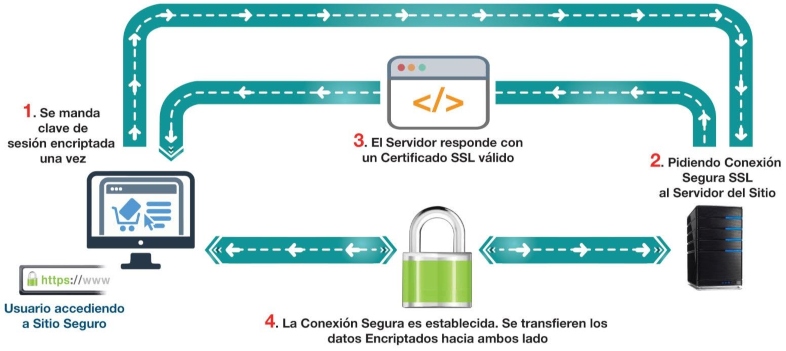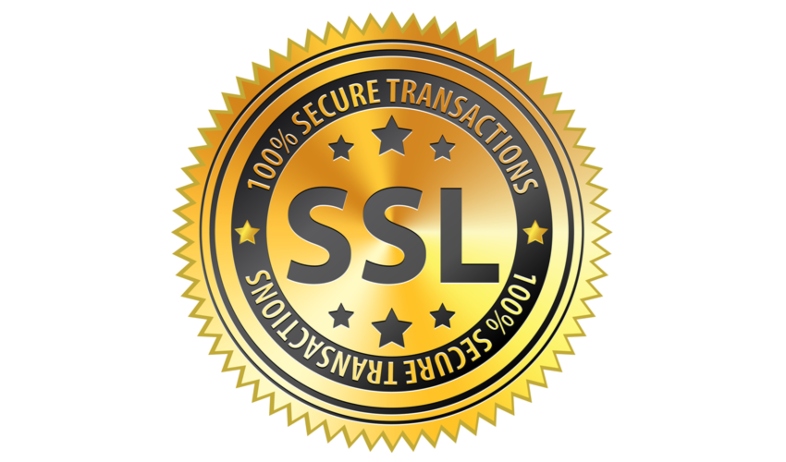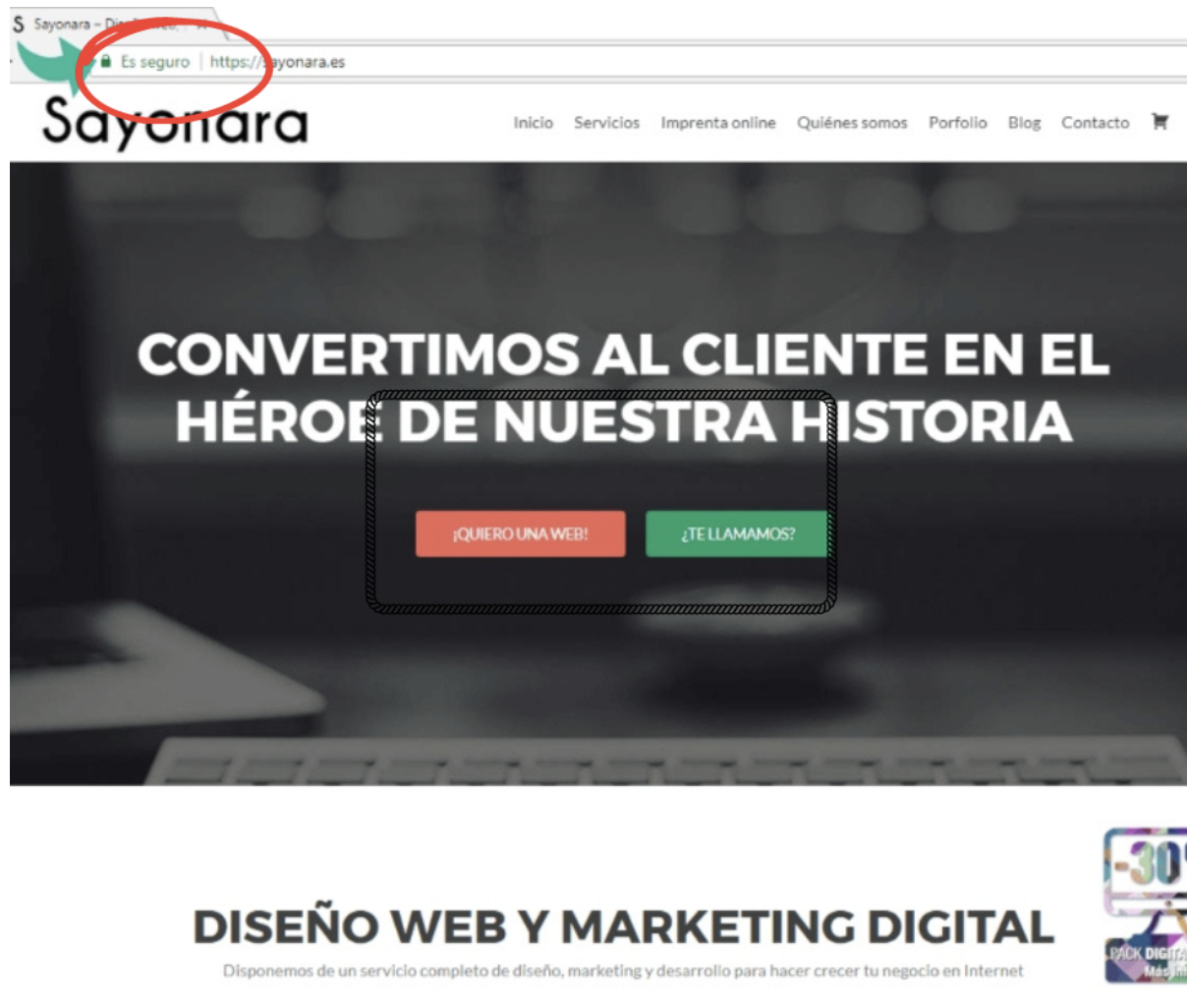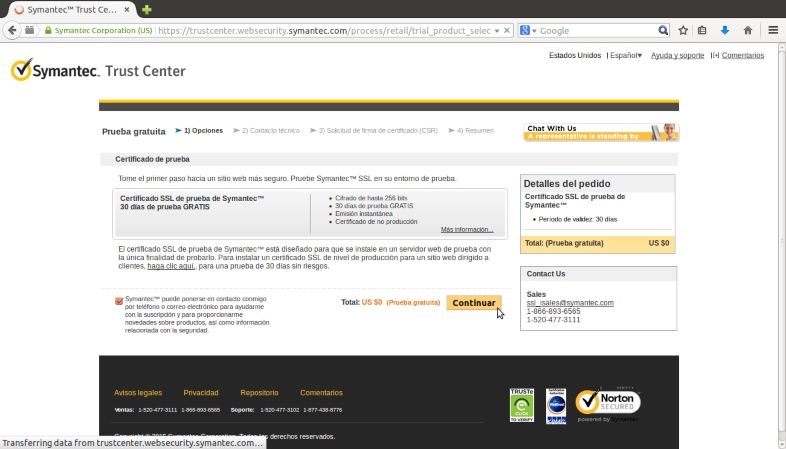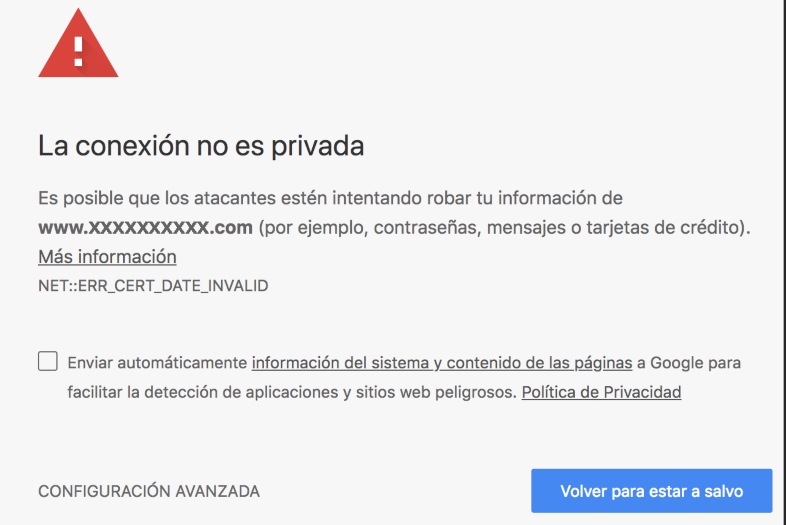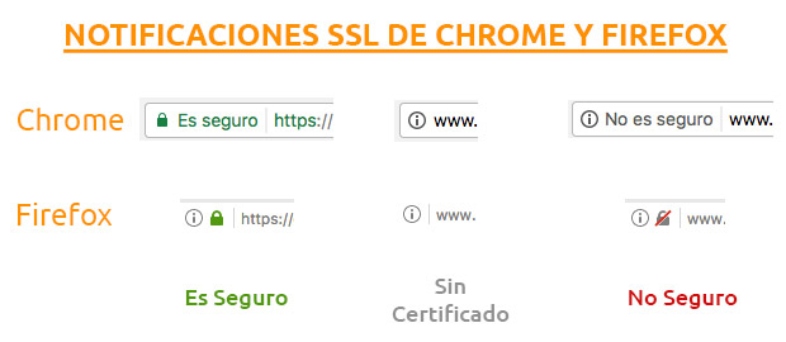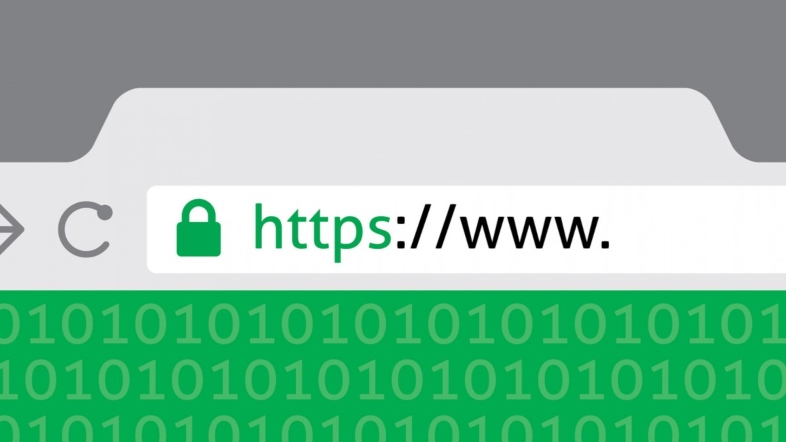What is an SSL certificate and how to get one
the 08 of August of 2024
the 08/08/2024
Whether you’ve just launched a new business, are improving your current site, or launching a new website, you’ll want to do it in the best way possible. In addition to offering quality products and services, it’s important to ensure that your website is secure and trustworthy. This is achievable with an SSL certificate and other security tools. In this article, we’ll explore what an SSL certificate is, what it’s for, why it’s important for your business, and how you can get one.
TABLE OF CONTENTS
What is an SSL Certificate?
An SSL certificate (Secure Sockets Layer) is a security protocol that encrypts the information transmitted between a server and a user. This ensures that sensitive data, such as personal and financial information, is protected from unauthorized access during transmission.
The main function of SSL is to encrypt data. This means that the information sent between the server and the user is transformed into a code that can only be decrypted by the intended recipient. This encryption protects against the interception of sensitive data by cybercriminals or malicious third parties.
The Importance of SSL
Using an SSL certificate is crucial for any website that handles confidential customer information. This tool ensures data security and increases consumer trust. Additionally, modern browsers label websites without this type of certificate as “not secure.” Therefore, this can negatively affect user perception and website traffic.
How to get an SSL Certificate ?
Given the importance of having an SSL certificate on your business website, we want to explain how you can obtain one to protect it from malicious actions by hackers.
- Choosing the Right Type of Certificate: There are different types of SSL certificates, each designed to meet different needs. Depending on what your website requires, you can choose between a Domain Validation, Organization Validation, Extended Validation, Wildcard, Multi-Domain, or Unified Communications Certificate.
In this regard, it’s important to choose a reliable Certificate Authority (CA), such as Let’s Encrypt, DigiCert, or Comodo, to ensure the certificate’s validity and acceptance.
- Obtaining Process: At this stage, a Certificate Signing Request (CSR) is generated, which must contain the information to be included in the SSL certificate. It is generated from the server where the certificate will be installed. Once created, the CSR is sent to the selected Certificate Authority (CA).
Then, the CA validates the provided information. This process will vary depending on the type of certificate, whether it’s Domain Validation, Organization Validation, or Extended Validation. After validation, the CA issues the certificate, which must be installed on the server.
- Server Configuration: Now it’s time to install the certificate on your server using the instructions provided by the CA. Be sure to redirect all HTTP traffic to HTTPS to leverage SSL security.
- Certificate Renewal: SSL certificates have a limited validity, so it’s crucial to renew them before they expire to maintain website security. This step is very important, as failing to renew on time can lead to security warnings and reduce user trust.
Types of SSL certificates
Depending on your website’s needs, different types of SSL certificates can be installed, which are as follows:
- Domain Validation Certificates (DV SSL): These only verify domain ownership and are quick and easy to obtain.
- Organization Validation Certificates (OV SSL): These not only validate domain ownership but also verify the existence of the requesting organization.
- Extended Validation Certificates (EV SSL): These offer the highest level of security and trust, thoroughly validating the organization’s identity.
- Wildcard SSL Certificates: These protect multiple subdomains under a single primary domain.
- Multi-Domain SSL Certificates (MDC): These allow securing multiple domains and subdomains with a single certificate.
- Unified Communications Certificates (UCC): Designed for Microsoft Exchange and Office Communications environments, they protect multiple domain names and services.
Why is an SSL certificate necessary for a website?
After learning what an SSL certificate is and the different types available, let’s discover why it’s necessary for your business:
1.- Legitimize Your Website
An SSL certificate on your site is associated with a webpage, blog, or digital site. This certificate is unalterable and 100% guarantees that the page is what it claims to be.
In the end, it’s not the website itself that declares its identity, but an independent regulatory and certifying entity that ensures the security and authenticity of the data.
2.- Authenticate the Web Server
The SSL certificate on your website is installed on a web server and guarantees that all data is being managed securely and encrypted. Without an SSL certificate installed, data cannot be sent or received on the website, preventing identity impersonation of the person or visitor.
3.- Prevent Malware and Phishing
This is one of the most important reasons to need an SSL certificate on your site. No one wants a hacker to infiltrate their system, steal data, or cause irreparable damage. This certificate scans and ensures that no malware exists on the website. It also fights against phishing, a technique commonly used to steal information by deceiving the victim into trusting a fake company, brand, or person.
4.- Increase User Trust
People visiting a site with an SSL certificate will feel much more secure than if it didn’t have one. Additionally, if the SSL certificate on your site is properly validated, they will have the peace of mind that all data is secure and cannot be stolen. The advantage is that different browsers warn users in advance if the page has an SSL certificate or not.
5.- Encrypt Information
All information on a website is transmitted in encrypted form, with only the browser and server knowing the keys to decrypt it. This guarantees total data security, especially for ecommerce sites.
Only use certificates from reliable sources with 2048-bit keys. It’s recommended not to use self-signed certificates or those from insecure sources.
6.- Increase website visit time
A more secure website allows users to stay longer on it. Having an SSL certificate on your site will enable customers to browse with complete peace of mind and explore other digital spaces of the brand. Some studies indicate that most users abandon ecommerce purchases due to a lack of trust. With an SSL certificate, that number significantly decreases.
7.- Increase sales
An ecommerce site with an SSL certificate will guarantee more security for users and, therefore, greater trust for consumers, which will increase sales. The more trust, the more sales.
8.- Activate HTTP2 and improve SEO
Having an SSL certificate enables the HTTP2 protocol, which allows the hosting to simultaneously send all parts of the website to the browser, improving its performance and load time. This can multiply the speed of a digital site by up to 5 times.
SEO also benefits from an SSL certificate. Google will prioritize sites with this certificate over those without it, ensuring your site appears first in search engine results.
9.- Browsers mark a site as secure
With SSL certificates on your site, browsers will mark the website as secure with a padlock icon in the address bar.
10.- Compliance with Regulations and Standards
Many data protection regulations, like the General Data Protection Regulation (GDPR) in Europe, require websites to handle data securely. Using an SSL certificate helps comply with these legal requirements, avoiding potential fines and penalties for non-compliance.
11.- Prevention of Browser Warnings
Without an SSL certificate, browsers will display security warnings that can scare users away and discourage them from continuing to browse. These alerts negatively impact user experience and the website’s reputation. An SSL certificate prevents these warnings, ensuring smooth and secure browsing.
12.- Integration with external services
Many external services and APIs require a secure connection to function properly. Having an SSL certificate allows for easier and more secure integration with these services, expanding the capabilities and functionalities of your website.
13.- Improve conversion rate
The added trust provided by an SSL certificate can directly impact your website’s conversion rate. Users are more likely to fill out forms, sign up for newsletters, and make purchases when they know their information is secure.
14.- Protect Forms
Contact, registration, and payment forms are critical points where sensitive information is collected. An SSL certificate ensures that the data entered in these forms is encrypted, protecting it from interceptions and unauthorized access.
Having an SSL certificate is essential for ensuring user security and trust on your website. This protocol encrypts information, protects against attacks, and enhances the site’s perception and performance. Additionally, obtaining and maintaining an SSL certificate is a straightforward process that can be done with the help of a trusted Certification Authority. Now that you know what an SSL certificate is, make sure to choose the one that best suits your needs and keep it updated to avoid security issues.
